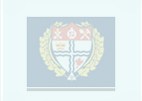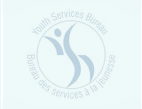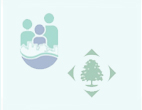









Keeping people safe & well
|
A True Picture of social Guidance
Highlights from a Community Dinner (December 15, 2005)
UNDP uses a term "social guidance." It is one of the core components of the UNDP community development projects in the developing world. Mostly the concerned staff has to go through many sessions of training to understand what social guidance is actually all about.
Community Dinner at Banff on December 15, 2005 was just a classic example of the real social guidance. Constable Lisa Briggs from Ottawa Police Services brought her particular flavor to the dinner-the natural woman to woman trust added more value to the discussion. The meeting proved to be just another building block on the police-community interaction and trust-building work that started last week in the second phase of community mobilization.
Collective social support was extending to the mothers with troubled kids and who more than once asked: So what shall we do. Constable Briggs facilitation and information just provided the glue that once more kept the participants in the Community House for more than 70 minutes than the allocated time. Highlights of the meeting are as follows:
The meeting started at 6:00 and lasted until 8:40 p.m.
As a result of opening up and coming out of the denial phase, some mothers openly discussed their personal problems with their troubled kids for help and guidance. Constable Briggs reminded the participants that we need not go into specifics, but one of the mothers, who were sharing their problems, said: “don’t worry, we are like a family.”
As usual there was no set agenda. Discussion and questions just flowed from the informal general discussion and took Constable Brigs to touch upon Safe School Act, Youth Criminal Justice Act, Robert Smart facility, role of School Resource Officer, parents’ roles and responsibilities, anger management support and information on other such issues.
Mothers were interested in learning how they can discipline their troubled children, particularly those who are frequently in trouble with the law. Furthermore, because of the cultural differences, other children are also testing parents to their limits. Parents expressed concern over Children’s threatening them with calling the police if they enforced code of good conduct at home.
Constable Briggs described various situations in which youth can go into trouble and how parents can act responsibly to address the problem. For that, parents need to know their rights and responsibilities, which were discussed at length. Feedback from the community members, who went through the experience of learning “how to say No” to their kids, helped in discussion on this issue to a great extent.
The community members were also made aware of the process and procedure about the way police lays charges and how parents can help in disciplining their kids. Without parents’ cooperation, there is very limited room for improvement.
The meeting, once again, proved that an outside facilitator is a good source of keeping motivation and community mobilization alive. It keeps the community members stay focused
Besides building trust for future individual and collective interactions, the meeting also helped moms bring out their kids who feel threatened in the community to come out and meet the police officer.
Future Action:
The immediate plan is to have the police officers drop in to the Lunch and Chat sessions as well to meeting a different clientele from the community.
This will lead us to holding a bigger information sharing session in which diversity and race relations will be one of the other topics which the community has chosen for elaborate discussion.
For the crime prevention component, Interaction with local youth is the next priority. Meetings will take place with the youth attending Tutoring classes and the older youth associated with the Youth Council to look into possible activities. Hopefully, Youth Services Bureau and other partner’s input will help strengthen this component of the project for achieving the desired objectives.











©
2005-08 South-East Ottawa Community Health Centre
Centre de Sante Communautaire du Sud Est D'Ottawa
Contact: Abid Jan Tel./ Tél: (613) 737-5115 Fax/Télé: (613) 739-8199
NCLB matters because neighbourhoods matter

